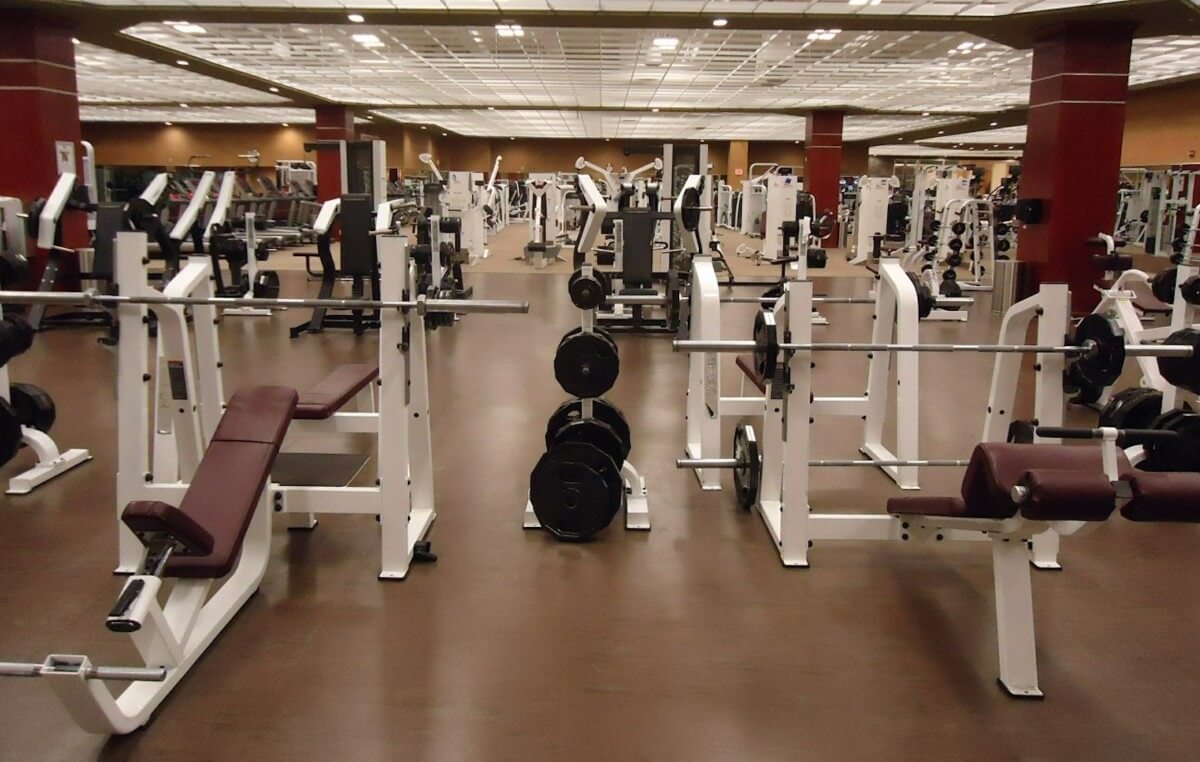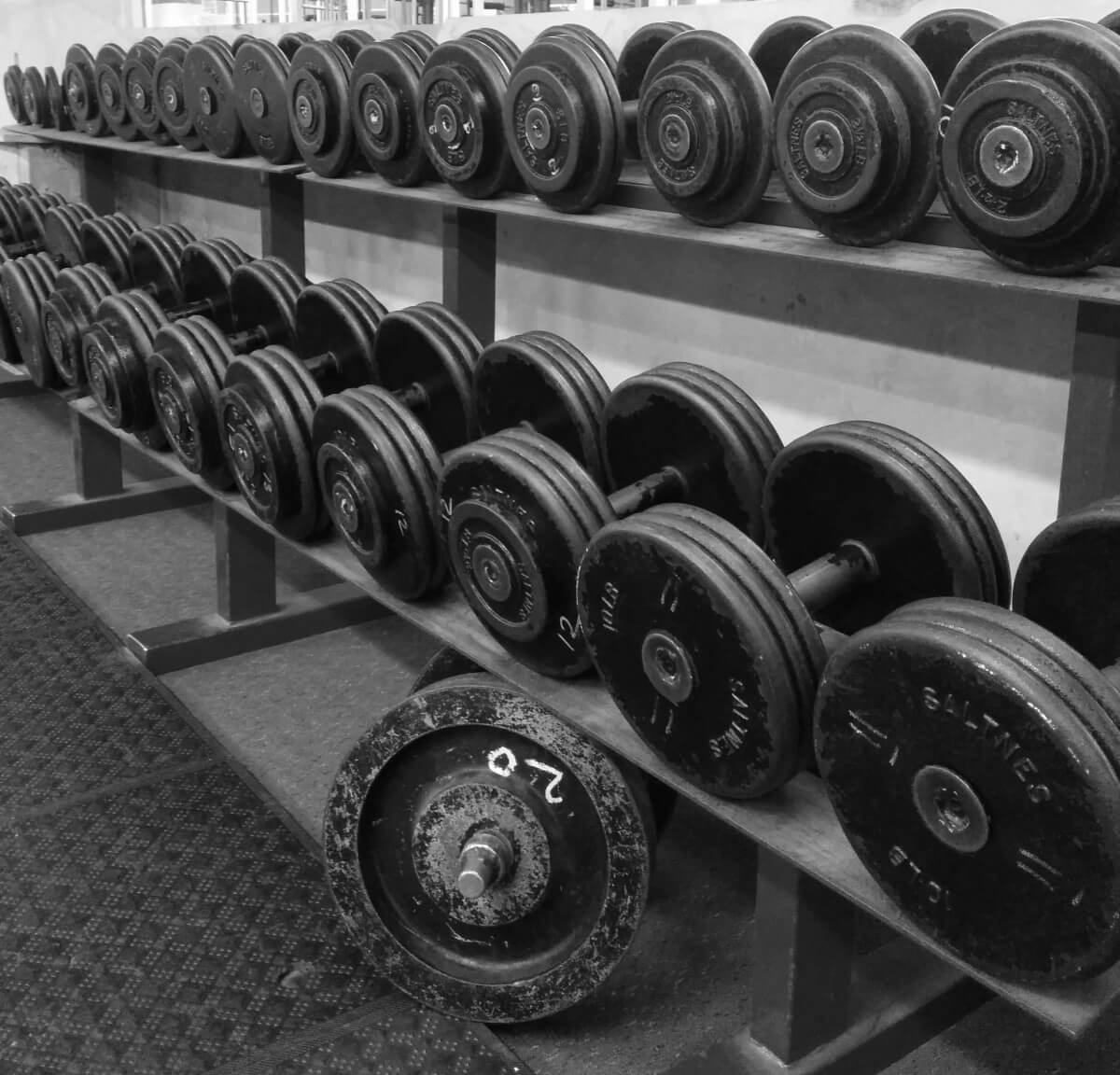
I am the only female in my high school PE department. It’s been this way for 20 years. The one time another female came in she tried to out-alpha the football coach and got removed from teaching PE and placed in Health. I think she might have taught one section of PE in the two years she was here, and I think it was Adapted PE. Since we’ve had a fully working weight room, it was always paired with the football coach. We got a new one this year, the fifth in my tenure working at this same high school. As soon as I heard he teaches through an app I put my judgmental hat on. Without any notion of what he does or how he does it, I decided we were adversaries.

Coaches who also teach a class based on using your body’s trend toward it being visually productive. It is much more about ‘making sure’ everyone is doing what they are ‘supposed’ to be doing and ‘working hard’. The culture of sport (and the newer sport-as-fitness) revolves around the premise of effort equals results. It dictates that you must remove the sensation to be successful. You are battling your body, not listening to or being led by it.
I experienced this system, understood this system, but was ultimately left crippled by this system (both literally and figuratively). As I watched the kids being trained the same way, down the same singular path, I knew I had to at least try to offer them an alternative (which, I have since learned, is not a duality but a harmonious integration). For the last decade, I have been building up the mental side of physicality. The feeling, the intention, that a how and why can be more exhilarating than checking off the what.

Cultivating autonomous beings that feel safe and supported enough to NOT go along with the plan (and being able to create their own) does not vibe with the current sentiment that permeates most weight rooms (or gymnasiums). Since most PE teachers are also coaches, the idea behind a collective effort makes perfect sense. It takes someone outside (on the other side of?) glorified sports culture to begin to perceive and promote individual agency as a strength and not a threat to compliance.
There is a protectiveness that seeps into being ‘the only one’. The only woman, the only non-coach, the only one looking outside of sports and fitness, the only one who built their curriculum instead of borrowing it. To make something is to believe it is worth the effort, and to craft, something is to be deliberate on the details that make it valuable. All of this can be proven with confidence because you don’t check out the other guy’s stuff in creation mode. You only see and know what you do.
“Support”, as I know it, is actually neglect and ignorance. ‘Not bothering me’ is the best I can hope for. Things survive best when you leave them alone. They figure it out. But surviving is not the same process as improving. Growing and evolving takes reflection and perspective — other than your own. Here is where I enter back into the story...

On one particularly beloved morning meeting, the department (3.5 guys and myself) got together in the guy’s locker room office to discuss the scope and sequence of Physical Education at the high school. Now that we were unified into one high school, a progression of beginner through advanced classes was proposed. The general outline was that we’d need an Introductory PE class to funnel every student into and that the second semester they would get to choose an option that best suits them. The current options to select from would be Games & Practice (my section), Team Sports, or Weight Lifting.

What should be offered in this ‘new basics’ class (not necessarily who was going to teach it) was a particular point of contention. We agreed that it should be a sampling of the disciplines and of the ‘advanced’ courses proposed. To do so, and to best emulate the spaces each progression would exist in, I argued that Intro would need to be able to use the weight room (an issue because Weights are offered pretty much every period).
When asked how long I would need, I responded with two weeks. Aside from the assumption that I would be teaching this freshman class (I do not mind at all that every student must go through me), I could tell by the look on his face that not having access to his domain was troubling. He then explained how you could build strength without the weight room and hinted that fitness needs to be a fundamental part of this class.

There was A LOT about this I had issues with, but the biggest part was the underlying (and spoken) current of “We all need to align to [my] practices since I am the weights teacher and this is where many will end up.” When I tried to explain how there could be different philosophies to teach loaded movements, he looked at me with a disdain and said “a fundamental squat pattern is a fundamental squat pattern.” When I tried to grab that there isn’t one type of squat, a third gentleman in the group (sweet, neutral Craig) asked, “How would you differentiate it?”. I revised with, “foot position, twisting, what the torso is doing, where the load or resistance might be… there are literally a million things you can tinker with…”

I was frustrated at this line of questioning and/or the need to defend myself, so I just kind of stopped talking. In hindsight, I know he was just trying to get me to tell him so the weights guy would have an understanding, but it felt like an impasse. We ended the meeting shortly thereafter, but I was peeved as I left. I relayed the situation to my partner and other than pointing out the toxic masculinity (of my version), she asked whether or not there is a department chair that sorts out what is needed to be taught outside these differences of opinion/technique.
Here is a sample of our exchanges:

[Note the time difference between these two pics.]
I stewed on it in the back of my mind for the next couple of periods. I also caught up with Craig and expressed my gratitude for his attempts at mediation:

Besides the excellent transition in the last sentence, I knew she was right. It pained me to be part of the problem.
I used the last few minutes of prepare to pen the following email and sent it off. Considering my olive branch pointed and outstretched, I went about my business. I got a simple reply four days later. I get that coaches are busy and have very little time between the job and the bonus job.

This email changed everything. He observed me on a Wednesday – a purposeful non-traditional day where we were in the mat room. The topics were hips, rotation, and squatting. [I make my points when I can.] We had the lights off, and he sat at one of the tables and occasionally took notes.
I observed him a few periods later, in his seriously ‘worst’ class. I tried hard to look for what was happening, not what was wrong. Everyone and I mean everyone, was active. They knew what to do and they did it. There was this symphony of positioning and placement, cycles of movement into certain areas of the large space. No one got distracted by their phone. They checked it (the app) quickly and went right back to work. If this was his worst I can only imagine what the other classes were like. He circulated and spoke with kids, on top of the slightest point of excessive idleness or rest.

They did stretch as a class to start, which I appreciated. I told him it was well structured and that they seemed eager and on task. He said he thought it was a pretty good day. On our way back in, he asked if I ever had a hard time pulling the kids back together from ‘independent time’ (I gave them rollers to start and had them do what they wished with them for about five minutes. When I asked at the five-minute mark if they needed more time, quite a few revised yes.Since this agreed with my visual check of use — and reminders of what one could do in the one-time lesson we had two weeks ago — I gave them a few more before leading them through the day’s exploration and investigation). I responded that I did not because they are the ones that set the time. If I notice that the majority don’t know what to do and aren’t trying anything, I shorten the independent section for that group on that day.
It was in these shared moments that we both saw that the other knew what they were doing and that certain kids responded to certain types of setups and systems. Neither is wrong and neither is superior. It’s just a way that works. Now when we see each other in the hall or on our way to the laundry room, we smile. We exchange barbs and acknowledge hellos. We hold the door open for the other when our hands are full, and look out for one another’s students. It’s a better place to work, and we impart an equally useful experience. There is such a change when outcasts feel a part of it. The separation is often in their minds. The climate we create for our kids is often the very one we wish for ourselves. For the outliers who are out to change the world, opportunity resides in your very own building, and often right next door.
